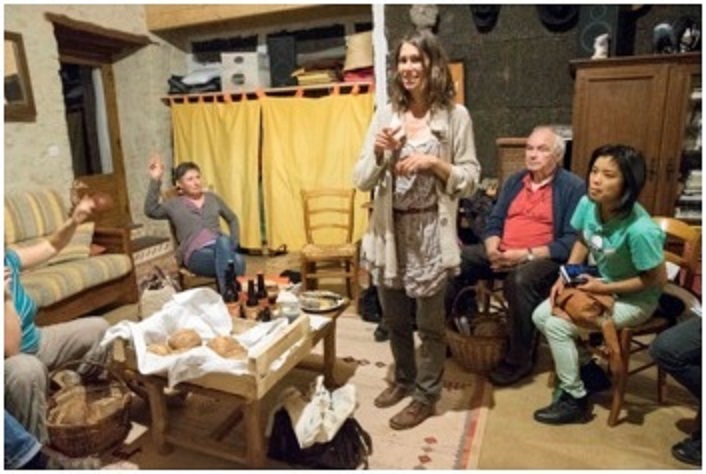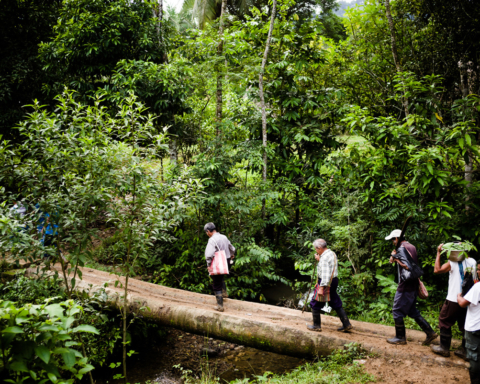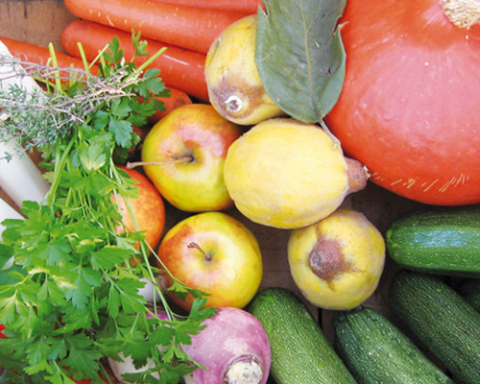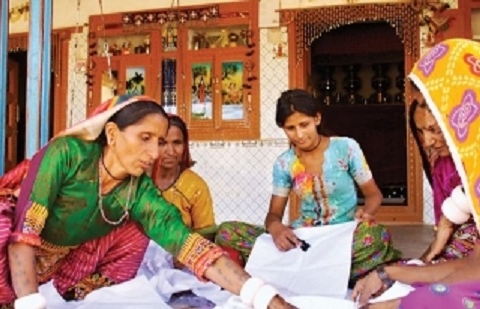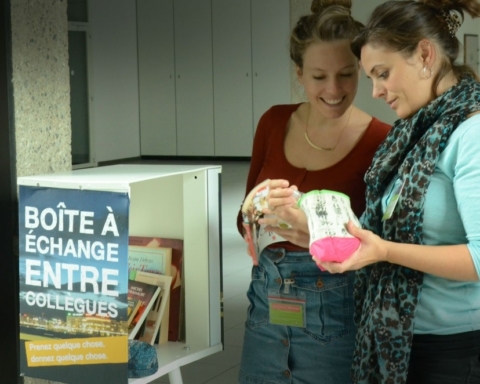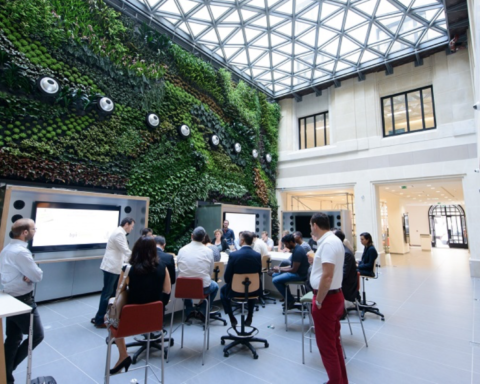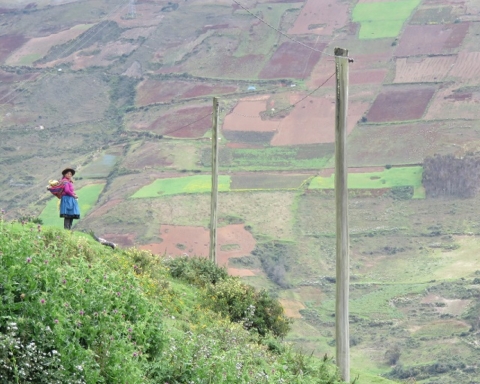Groups of people in various towns in France are calling for sustainable actions for organic food. We have stopped at Champagné-Saint-Hilaire, a town in the department of Vienne, Poitou-Charentes. (Article published by Helen Bannier in We Demain, September 26, 2016. Photo credit: Claire Marquis)
These twenty families are working wonders since 2009. The process is simple. Each member takes under his tutelage some products; manage its orders and procurement. In doing so, they buy organic, protect local producers and make savings.
They met every third Friday of the month. This evening they are regrouped in the living room of Gisèle in Courtioux. We discover commodities to be shared this month as milk, flour, vegetables, spices, pulses, meat, bread, honey, sugar, beer, herbal tea, rice, soaps, essential oils….
Etienne and Laurie are the founding members. It all started seven years ago with five / six families. “We said that if we buy our products, local and organic, wholesale, directly with producers, we will do good business. So, we assessed our needs and contacted the producers that we know,” they explain.
The twenty families that are part of this group love the informal and festive side of their actions. “We do not want to regroup in association with specific rules. We have an internal charter which defines our goals, how we operate and the system adopted for trade. For example, it is recorded that we cannot exceed twenty families because beyond that amount it is unmanageable,” says Gisèle. However, even if the grouping denies access to new members, with their experience, they help them set up their own purchasing group.
At the end of the day this is a win-win formula for families and farmers. Knowing that the group will help in their livelihood, market gardeners play the game. Claire tells that an organic vegetable farmer plant more potatoes rows depending on the request of the group. “He even allows us to pick up and thus we pay cheaply, 1.50 euro per kilo”.
“Now, with our commitment to buy his vegetables, this seller has seen his work taking off and can even afford one weekend off per month and three weeks’ vacation per year,” said a delighted Françoise.
Providing organic food at non-organic prices.
Although the economic aspect of this activity is of paramount importance, they do not pay so special attention to count how much they save each month. But they are certain that they are doing the right thing by buying wholesale instead of retail.
Martine emphasizes that she buys oranges at less than 2 Euros per kilo which means she is getting organic food at a non-organic price. Green lentils cost them 2.90 Euros if they buy 25 kilos while the retail price is 3.40 Euros per kilo and the bio of that same kilo of lentils will cost to 3.90 Euros.
If she compares with prices of equivalent products in organic shops, Claire will make between 250 and 300 Euros profit a year for her couple and two children.
Apart from shopping, this evening, they take advantage of placing orders for next month. Currency coins juggle and checks are drawn with an unwavering confidence in the neighbour.








